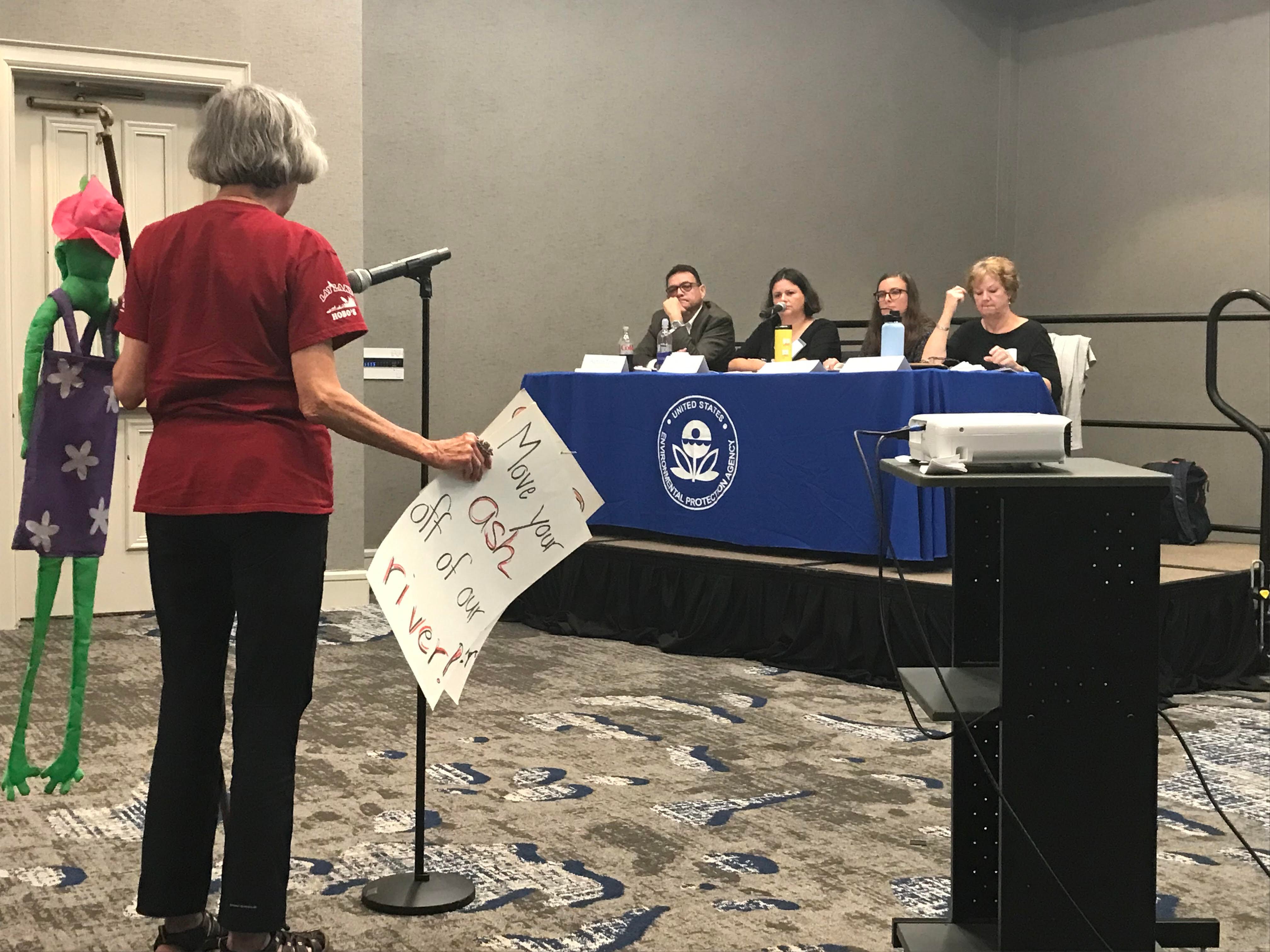MONTGOMERY — The Environmental Protection Agency hosted a public hearing in Montgomery on Wednesday on a proposed denial of the Alabama Department of Environmental Management's (ADEM) coal ash pond permit plan.
Coal ash is a thin residue that remains when coal-fired electric power plants produce energy. It builds to leave piles of ash. The EPA issued a proposed denial in August of the state's permit program to manage coal combustion residuals. The EPA said the ADEM requirements do not protect waterways and people enough. The agency said ADEM does not require groundwater infiltration to be adequately addressed when coal ash units are closed.
Some citizens and environmental groups advocated for moving the coal ash currently stored in ponds to landfills in other parts of the state away from waterways. Various business groups said ADEM's current permitting plan under a proposed denial by the EPA is safe and cost-effective.
Former Wilsonville Mayor Lee McCarty said at the public hearing on Wednesday, "(Alabama Power) raised rates a few years ago and claimed it was because of these coal ash costs which they haven't spent any money on yet. They need to. We need Big Brother to step in here and help us with the bully."
"We've got 24 million tons of coal ash sitting in our little town of 2,000 people. We have people's homes…my friends, neighbors, and constituents that backed right up to a three to five-story high mound of coal ash," he continued. "The coal ash pond goes right out to the river. It's so in our groundwater that when the first test results came in they were alarming. We had some MCLs that were 2,000% over the maximum contaminant level allowed. Constituents came to me and said, 'Well, what should we do? What can we do?' Well, we go to Alabama Power Company and talk to them. They respond with a disinformation campaign frankly. We start going to Environmental Management Commission meetings. They just look at us like stop signs. Nothing. You know, Alabama Power has been granted a monopoly. A company that has been granted a monopoly should be held to a higher standard, not a lower standard. Not a standard where they get to break the law. They get to dominate and bully state government and the citizenry to do basically whatever they want, whenever they want."
David Rodgers, vice president of the Mobile Chamber, said his organization supported ADEM's permit plan and urged the EPA to reconsider its decision.
"According to an independent analysis of Mobile Bay National Estuary Program of the Plant Barry site, It'll take 1.1 million truckloads to remove the 22.7 million tons of material. To put that in perspective, it would take 24 years with loaded dump trucks leaving every four minutes for ten hours per day, six days a week. But where is the material going to be taken? Will a new landfill be built? What community is going to accept having the material brought into their backyard? One would assume that if the EPA is going to require this amount of material, 22.7 million tons worth, to be transported through the state that a risk assessment would be part of this rule. However, no risk assessment was considered," Rodgers said.
Susan Comensky, vice president of environmental affairs for Alabama Power, said, "Alabama Power's plans are safe, compliant with federal and state regulations and protect human health and the environment."
"Even today before closure is complete we are not aware of any impacts to drinking water sources at or around the Alabama Power ash ponds," she added.
Justinn Overton, executive director of the Coosa Riverkeeper, said ADEM's permits "puts our waterways, traditions, and wildlife at risk."
"Simply covering up the coal ash while sitting in groundwater does not stop pollution nor does it stop the risk from floods, hurricanes, and spills. ADEM's permits do not require facilities to adequately prevent and monitor groundwater contamination of toxic coal ash. Alabama Power created this problem when they began disposing of highly toxic waste in unlined pits right next to our waterways in order to save money," she added.
Public comments on the proposed denial are due by October 13.
To connect with the author of this story or to comment, email caleb.taylor@1819News.com.
Don't miss out! Subscribe to our newsletter and get our top stories every weekday morning.









